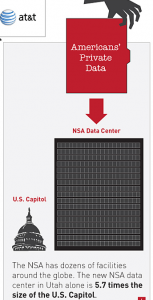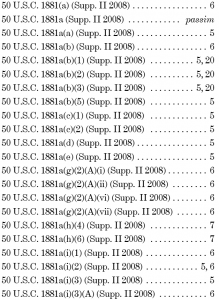The NYPD’s Surveillance of Muslims and Occupy Wall Street Converges
I started my morning reading with this AP Q&A on the significance of their series on the NYPD’s spying on Muslims. There are several things missing: why does the NYPD profile only businesses they believe to be owned by Muslims, and not the American chains at which recent immigrants also congregate? Why doesn’t the Q&A discuss how the NYPD-on-the-Hudson got close to, but missed the two most significant plots of recent years; what does that say about the efficacy of all this spying? And why doesn’t the Q&A discuss the many informants the NYPD has deployed?
That said, the AP does get to the core reason why the NYPD’s program abuses the First Amendment:
Bloomberg and his aides have not addressed, however, why police kept intelligence files on innocuous mosque sermons and plans for peaceful protests. They’ve not explained why police noted which restaurants served “devout” Muslims, why police maintained lists of Muslims who changed their names or why innocent people attending Friday prayer services were photographed and videotaped.
Those activities, many Muslims said, make them feel like they’re under scrutiny just because of their religion.
After reading that Q&A, I then read this NYT article, talking about how the NYPD’s intelligence division–the CIA-on-the-Hudson again–has preemptively arrested some Occupy Wall Street protestors before they engaged in protest.
On Nov. 17, Kira Moyer-Sims was near the Manhattan Bridge, buying coffee while three friends waited nearby in a car. More than a dozen blocks away, protesters gathered for an Occupy Wall Street “day of action,” which organizers had described as an attempt to block the streets around the New York Stock Exchange.
Then, Ms. Moyer-Sims said, about 30 police officers surrounded her and the people in the car.
All four were arrested, said Vik Pawar, a lawyer for Ms. Moyer-Sims and two of the others, and taken to a police facility in the East Village. He said officers strip-searched them and ignored their requests for a lawyer.
These are the same tactics–or worse–as used when the NYPD targeted Muslims planning a peaceful protest of cartoons deemed blasphemous. But most troubling is the last anecdote the NYT reports (which the NYT might have known to contextualize if they had been reporting on the NYPD spying on Muslims). In one case, they NYPD and the FBI are targeting an Occupy activist who, as someone who appears to have changed his name from his birth name, would have been targeted closely under the NYPD program. And they appear to be insinuating a tie with Islamic terrorism.
Mark Adams, a 32-year-old engineer from Virginia, said he was arrested in November at an Occupy Wall Street protest in Midtown and was questioned by a police detective and an agent from the Federal Bureau of Investigation, who asked about his involvement with Occupy Wall Street, requested his e-mail address and inquired whether he had ever been to Yemen or met anyone connected to Al Qaeda.
Mr. Adams, a naturalized United States citizen who was born in Pakistan, said he was arrested during another protest in January and questioned by intelligence division detectives. In that instance, he said, the detectives asked him about specific names and addresses, asked about his work history, education and family, and questioned him about a trip he had made to Ireland.
Mr. Adams said he was disturbed that anyone would consider him a threat because of his ethnicity or political views. “It’s scary,” he said. [my emphasis]
As the AP reported last October, the NYPD conducts extensive checks and keeps records on those within the city who change their names from Arabic or Muslim-sounding names to something Americanized.
The NYPD monitors everyone in the city who changes his or her name, according to internal police documents and interviews. For those whose names sound Arabic or might be from Muslim countries, police run comprehensive background checks that include reviewing travel records, criminal histories, business licenses and immigration documents. Read more →



